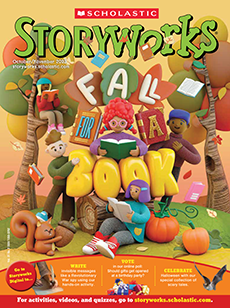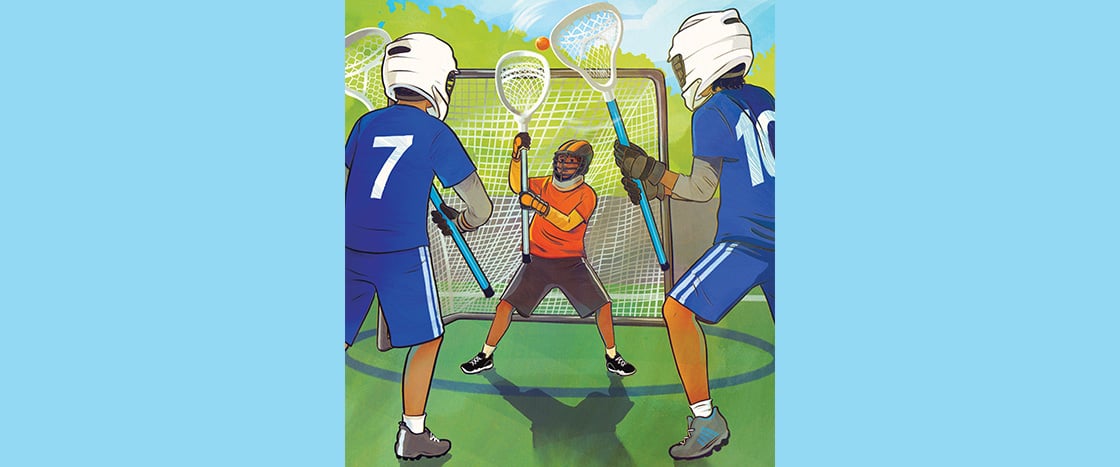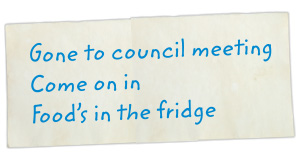Oren shifted his lacrosse stick from one hand to the other.
Even with the mask on his face, his padding, and his gloves, he was feeling unprotected. The goal behind him was 6 feet by 6 feet. But it seemed as big as a barn door now that he was the one guarding it.
In front of him were nine other boys on the team. Perry Elm, the third defender, turned to look over his shoulder at Oren.
“No worries,” Perry said. “We got this. No one’s getting past us.”
Oren nodded. He couldn’t believe that he was actually on the same field with these guys—in a real game. His heart should have been pumping with excitement. He was finally playing goalkeeper, the position he’d practiced for so very long. Instead, he was terrified.
Why am I so upset? Oren wondered.
His team was ahead 14-2 with only two minutes left in the game. No way they could lose. That was why he, the third-string goalkeeper, had been given a chance.
A chance to look like a goof.
The team they were playing, the Buffalo Bulls, actually wasn’t that bad. But Oren’s team was winning because they were a whole lot better. After all, the Bulls weren’t buffaloes at all. They were just kids from the city of Buffalo, New York.
He’d bet none of them had ever set foot on a lacrosse field before they hit middle school. How many of them had held their first stick before they could even walk? How many of them had a grandfather like his who was a legend of the game?
And not one of those kids on the visiting team was Indian. Oren and his teammates, on the other hand, were Onondaga, one of the six nations of the Haudenosaunee Confederacy. The Haudenosaunee [hoh-deh-noh-SHOH-nee] had invented lacrosse.
“We’re proud, we are strong.”
That’s how Joanne Shenandoah sang it on his mom’s favorite CD. It was sort of a corny song, but it usually inspired him.
Haudenosaunee. We’re Haudenosaunee. And everybody on our team is so much better than these guys.
Except me.



